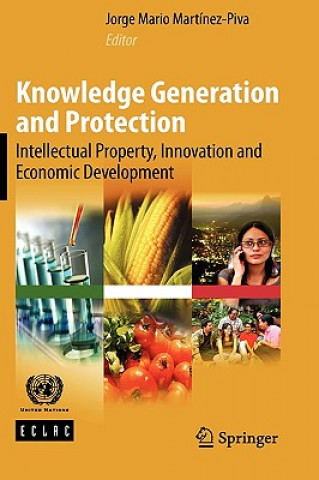
Kód: 01420604
Knowledge Generation and Protection
Autor Jorge M. Martinez-Piva
The wealth of the most developed nations, and, to a large extent their economic growth, can be explained by the capacities to generate research, create knowledge, appropriate it and transform it into new technologies. The study of ... celý popis
- Jazyk:
 Angličtina
Angličtina - Vazba: Pevná
- Počet stran: 321
Nakladatelství: Springer-Verlag New York Inc., 2009
- Více informací o knize

3313 Kč

Skladem u dodavatele v malém množství
Odesíláme za 12-17 dnů
Potřebujete více kusů?Máte-li zájem o více kusů, prověřte, prosím, nejprve dostupnost titulu na naši zákaznické podpoře.
Přidat mezi přání
Mohlo by se vám také líbit
-
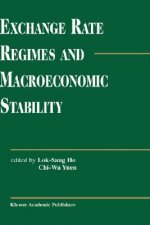
Exchange Rate Regimes and Macroeconomic Stability
3313 Kč -

Fuzzy Cooperative Games
3313 Kč -

Popular Music Genres
5181 Kč -

Battle Zone Normandy: Operation Epsom
488 Kč -

Ukulele Chord Songbook
448 Kč -

Alice in Sussex
511 Kč -

Grundlagen Der Psychologischen Diagnostik
994 Kč
Dárkový poukaz: Radost zaručena
- Darujte poukaz v libovolné hodnotě a my se postaráme o zbytek.
- Poukaz se vztahuje na celou naši nabídku.
- Elektronický poukaz vytisknete z e-mailu a můžete ihned darovat.
- Platnost poukazu je 12 měsíců od data vystavení.
Více informací o knize Knowledge Generation and Protection
Nákupem získáte 331 bodů
 Anotace knihy
Anotace knihy
The wealth of the most developed nations, and, to a large extent their economic growth, can be explained by the capacities to generate research, create knowledge, appropriate it and transform it into new technologies. The study of the dynamics and contemporary mechanisms for the circulation, access, and commercial application of knowledge is an urgent task, since the capabilities related to technological change appear increasingly to be the path for developing countries to move away from their condition on the periphery.§Knowledge Generation and Protection, edited by Jorge Mario Martínez-Piva, and showcasing research from academics, policymakers, and consultants, offers an analysis of three fundamental topics. The first is whether strengthening protection of intellectual property encourages or hinders technological learning and innovation in the developing countries. The second addresses the way in which knowledge is generated and how it is transformed into useful technology for the market, that is, how national innovation systems work. The third is the role of public policy as an instrument for innovation and for regulating intellectual property. Chapters explore the relationships among intellectual property, innovation, economic development, and policy in depth, with particular attention to such emerging topics as the impact of trade agreements on intellectual property rights and sensitive issues for developing countries such as access to medicines, and protection of biological diversity, living organisms, and traditional knowledge. Several chapters focus on Mexico, which serves as an important example as the only developing nation that is a member of OECD and has a rich history of industrial policy, science and technology policy, and trade openness. The concluding chapter argues that if developing countries seek to develop dynamic competitiveness based on knowledge and innovation in the present context of rigorous intellectual property regulations, they should take a leap in their science and technology policies to take advantage of the growing world market and open up long-term development paths.The wealth of the most developed nations, and, to a large extent their economic growth, can be explained by the capacities to generate research, create knowledge, appropriate it and transform it into new technologies. The study of the dynamics and contemporary mechanisms for the circulation, access, and commercial application of knowledge is an urgent task, since the capabilities related to technological change appear increasingly to be the path for developing countries to move away from their condition on the periphery.§Knowledge Generation and Protection, edited by Jorge Mario Martínez-Piva, and showcasing research from academics, policymakers, and consultants, offers an analysis of three fundamental topics. The first is whether strengthening protection of intellectual property encourages or hinders technological learning and innovation in the developing countries. The second addresses the way in which knowledge is generated and how it is transformed into useful technology for the market, that is, how national innovation systems work. The third is the role of public policy as an instrument for innovation and for regulating intellectual property. Chapters explore the relationships among intellectual property, innovation, economic development, and policy in depth, with particular attention to such emerging topics as the impact of trade agreements on intellectual property rights and sensitive issues for developing countries such as access to medicines, and protection of biological diversity, living organisms, and traditional knowledge. Several chapters focus on Mexico, which serves as an important example as the only developing nation that is a member of OECD and has a rich history of industrial policy, science and technology policy, and trade openness. The concluding chapter argues that if developing countries seek to develop dynamic competitiveness based on knowledge and innovation in the present context of rigorous intellectual property regulations, they should take a leap in their science and technology policies to take advantage of the growing world market and open up long-term development paths.
 Parametry knihy
Parametry knihy
Zařazení knihy Knihy v angličtině Economics, finance, business & management Economics International economics
3313 Kč
- Plný název: Knowledge Generation and Protection
- Podnázev: Intellectual Property, Innovation and Economic Development. Economic Commission for Latin America and the Caribbean (ECLAC)
- Autor: Jorge M. Martinez-Piva
- Jazyk:
 Angličtina
Angličtina - Vazba: Pevná
- Počet stran: 321
- EAN: 9781441912633
- ISBN: 1441912630
- ID: 01420604
- Nakladatelství: Springer-Verlag New York Inc.
- Hmotnost: 1450 g
- Rozměry: 235 × 155 × 21 mm
- Datum vydání: 01. December 2009
Oblíbené z jiného soudku
-

New Confessions of an Economic Hit Man
410 Kč -

Treasure Islands
306 Kč -

Merchants of Grain
526 Kč -

Great Rebalancing
399 Kč -

Natural Capitalism
457 Kč -

Turbulent and Mighty Continent - What Future for Europe?
748 Kč -

International Economics: Theory and Policy, Global Edition
2259 Kč -

Has the West Lost It?
276 Kč -

Principles for Dealing with the Changing World Order
1110 Kč -

Soros on Soros - Staying Ahead of the Curve
903 Kč -

The Competitive Advantage of Nations
1018 Kč -

Expert Advisor Programming for Metatrader 4
832 Kč -

Concise History of International Finance
869 Kč -

Handbook of International Trade and Finance
2057 Kč -

Japanese Business Culture and Practices
344 Kč -

Understanding Ludwig Lachmann's Economics
592 Kč -

Coercing, Constraining and Signalling
1537 Kč -

Secrets of Temple
626 Kč -
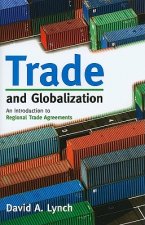
Trade and Globalization
2624 Kč -

Bad Samaritans
330 Kč -

The Road to Ruin
410 Kč -

SuperHubs
306 Kč -

China Shakes The World
276 Kč -

International Economics with MyEconLab
1692 Kč -

Cracking the China Conundrum
1259 Kč -

Import/Export: How to Take Your Business Across Borders
758 Kč -

EuroTragedy
1123 Kč -

Forex for Ambitious Beginners
567 Kč -

Age of Turbulence
464 Kč -

Is the American Century Over?
319 Kč -

Managerial Economics in a Global Economy
6545 Kč -

International Trade
3211 Kč -

Red Flags
723 Kč -

Fair Trade
312 Kč -

Splendid Exchange
544 Kč -

Fault Lines
361 Kč -

Transatlantic Defence Procurement
4673 Kč -

International Economic Institutions
1681 Kč -

Oxford Handbook on The World Trade Organization
1709 Kč -

International Trade Finance
2142 Kč -

No Ordinary Disruption
368 Kč -

Informal Post-Socialist Economy
1697 Kč -

Economics of the European Union
2807 Kč -
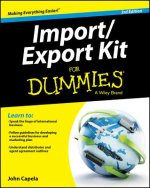
Import/Export Kit For Dummies 3e
574 Kč -

Signals
276 Kč -

Doing Business in Europe
2386 Kč -
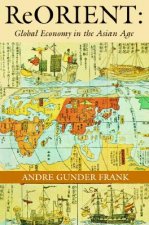
ReORIENT
1025 Kč -

Making Globalization Work
303 Kč -

Medieval Trade in the Mediterranean World
1232 Kč
Osobní odběr Praha, Brno a 12903 dalších
Copyright ©2008-24 nejlevnejsi-knihy.cz Všechna práva vyhrazenaSoukromíCookies


 Vrácení do měsíce
Vrácení do měsíce 571 999 099 (8-15.30h)
571 999 099 (8-15.30h)